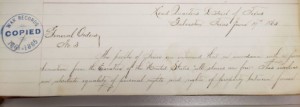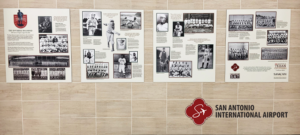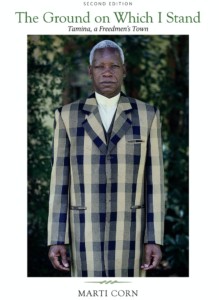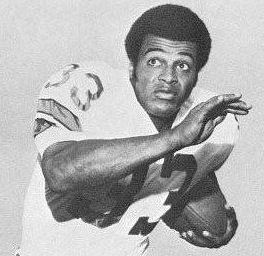Racial violence and a pandemic: How the Red Summer of 1919 relates to 2020
The wave of violence a century ago against Black Americans echoes how today, “people feel they have little to lose, and so much at stake,” one historian said.
Photo: Crowd of men and armed National Guard in front of the Ogden Cafe during the 1919 race riots in Chicago. (Chicago History Museum/The Jun Fujita negatives collection)
(nbcnews.com) Racial strife flaring across the United States. Black Americans standing up to societal structures in unpredictable ways. People enduring months of a deadly pandemic infecting millions worldwide, shuttering businesses and heightening fears of a lengthy economic downturn.
That was 1919, during what would later be coined the “Red Summer,” when communities across America were reeling from white mobs inciting brutality against Black people and cities were still wrestling with a third wave of the so-called Spanish flu pandemic that emerged the previous year.
The story line parallels with today: violence against Black people, leading to mass demonstrations and calls to end systemic racism, converging with a months-long coronavirus pandemic. Such commonality is not lost on historians and scholars of African American history.
But if history is any indication, the developments of barely a century ago, when civil rights groups were reinvigorated and Black journalists and activists asserted their voices, might also offer a glimpse into how 2020 — and beyond — could play out. (more)
National Archives Locates Handwritten Juneteenth Order
On June 19, 1865, the decree informed the people of Texas that enslaved individuals were now free
 (Smithsonianmag.com) Abraham Lincoln issued the Emancipation Proclamation, which declared all enslaved individuals in rebel states free, on January 1, 1863. But the institution of chattel slavery in the United States only came to an end in June 1865—two months after Confederate commander Robert E. Lee surrendered and a full two-and-a-half years after the original proclamation was signed.
(Smithsonianmag.com) Abraham Lincoln issued the Emancipation Proclamation, which declared all enslaved individuals in rebel states free, on January 1, 1863. But the institution of chattel slavery in the United States only came to an end in June 1865—two months after Confederate commander Robert E. Lee surrendered and a full two-and-a-half years after the original proclamation was signed.
When General Gordon Granger and his army of 2,000 soldiers arrived in Galveston, Texas, to quell a remaining pocket of resistance, he issued a formal military order informing thousands of people of their newfound freedom. Ahead of the 154th anniversary of this June 19 declaration—now widely recognized as Juneteenth, a second American Independence Day—historians at the National Archives have located the handwritten order itself, reports Michael Ruane for the Washington Post. The document is likely the earliest existing copy of the decree. (more)
ITC contributes to airport exhibit for Negro League Baseball centennial
 (UTSA.edu) Recent efforts from San Antonio researchers, educators and community members have created an exhibit showcasing one of the lost gems of American history: Negro League Baseball.
(UTSA.edu) Recent efforts from San Antonio researchers, educators and community members have created an exhibit showcasing one of the lost gems of American history: Negro League Baseball.
UTSA’s Institute of Texan Cultures has partnered with the San Antonio Airport System, San Antonio Missions Baseball, the Texas Kidney Foundation and the San Antonio African American Community Archive and Museum to prepare “The Invisible Diamond: 100 Years of Negro League Baseball,” installed at San Antonio International Airport.
The photo exhibit recognizes the vital role African Americans played in the history of baseball.
Greg Garrett, a researcher and educator at the Institute of Texan Cultures who has studied baseball and the importance of organized sports in state history, identified Texans who helped Negro League baseball. (more)
TIPHC Bookshelf
 Published scholarship on black history in Texas is growing and we’d like to share with you some suggested readings, both current and past, from some of the preeminent history scholars in Texas and beyond. We invite you to take a look at our bookshelf page – including a featured selection – and check back as the list grows. A different selection will be featured each week. We welcome suggestions and reviews. This week, we offer, “The Ground on Which I Stand, Tamina, a Freedmen’s Town,” by Marti Corn.
Published scholarship on black history in Texas is growing and we’d like to share with you some suggested readings, both current and past, from some of the preeminent history scholars in Texas and beyond. We invite you to take a look at our bookshelf page – including a featured selection – and check back as the list grows. A different selection will be featured each week. We welcome suggestions and reviews. This week, we offer, “The Ground on Which I Stand, Tamina, a Freedmen’s Town,” by Marti Corn.
In 1871, newly freed slaves established the community of Tamina —then called “Tammany”—north of Houston, Texas, near the rich timberlands of Montgomery County. Located in proximity to the just-completed railroad from Conroe to Houston, the community benefited from the burgeoning local lumber industry and available transportation. The residents built homes, churches, a one-room school, and a general store.
In the decades since, urban growth and change have overtaken Tamina. The sprawling communities of The Woodlands, Shenandoah, Chateau Woods, and Oak Ridge have encroached, introducing both new prospects and troubling complications, as the residents of this rural community enjoy both the benefits and the challenges of urban life. On the one hand, the children of Tamina have the opportunity to attend some of the best public schools in the nation; on the other hand, residents whose education and job skills have not kept pace with modern society are struggling for survival.
Through striking and intimate photography and sensitively gleaned oral histories, author Marti Corn has chronicled the lives, dreams, and spirit of the people of Tamina. The result is a multi-faceted portrait of community, kinship, values, and a shared history. In 2016, the book cover portrait of Tamina resident Johnny Jones was featured at the Smithsonian’s National Portrait Gallery.
This second edition of Corn’s classic photographic essays and interviews with Tamina residents includes a helpful classroom guide for collecting and studying oral history. The result is a rich new resource that affords readers a window into a little-understood part of our shared past.
Jun 21

Dallas Cowboys’ running back Duane Thomas was born on this day in 1947 in Dallas. Thomas had an exceptional career at Lincoln High School, then at West Texas State, where he teamed with another future pro running back, Mercury Morris. Thomas was the Cowboys’ first round pick (23rd overall) in the 1970 draft and was the NFC Rookie of the Year after leading Dallas in rushing (803 yards). He led the league in rushing in 1971 and led the Cowboys with 95 rushing yards and a touchdown in Dallas’ first Super Bowl victory, a 24-3 win over the Miami Dolphins in Super Bowl VI.
Jun 21
 On this date in 1955, the El Paso School Board voted to abolish segregation in the city’s public schools becoming the first district in Texas to unconditionally favor desegregation. The move came one year after the U.S. Supreme Court struck down segregation in public schools in the Brown v. Board of Education decision. El Paso board member Ted Andress made the motion: “The School Board members have taken notice of the recent Supreme Court decision on compulsory segregation (which was enforced in Texas). I think it is time that this board makes the prompt and reasonable start toward integration that should be made. I move that we comply with all rulings of the Supreme Court and that segregation on a compulsory or involuntary basis shall not be enforced in the El Paso Public Schools.” The motion took effect with the opening of schools for the 1955 fall semester.
On this date in 1955, the El Paso School Board voted to abolish segregation in the city’s public schools becoming the first district in Texas to unconditionally favor desegregation. The move came one year after the U.S. Supreme Court struck down segregation in public schools in the Brown v. Board of Education decision. El Paso board member Ted Andress made the motion: “The School Board members have taken notice of the recent Supreme Court decision on compulsory segregation (which was enforced in Texas). I think it is time that this board makes the prompt and reasonable start toward integration that should be made. I move that we comply with all rulings of the Supreme Court and that segregation on a compulsory or involuntary basis shall not be enforced in the El Paso Public Schools.” The motion took effect with the opening of schools for the 1955 fall semester.
Jun 22

On this date in 1962, basketball great Clyde “The Glide” Drexler was born in New Orleans. Drexler graduated from Sterling High School in Houston then attended the University of Houston where he starred as a member of the teams known as Phi Slama Jama for their fast pace, dunking, high flying style. Drexler was the 14th overall pick of the 1983 NBA Draft by the Portland Trail Blazers and twice led the team to the NBA Finals (1990, 1992). However, he played alongside center and former UH teammate Hakeem Olajuwon on the Houston Rockets 1995 NBA title team. Drexler was a 10-time All-Star, a member of the 1992 U.S. Olympic dream team, and named one of the 50 greatest players in NBA history. He was elected to Naismith Memorial Basketball Hall of Fame in 2004.
Jun 27

Ronald “Ron” Kirk, the first black mayor of Dallas, was born on this day in 1954 in Austin. Kirk is the son of Willie Mae Kirk, a school teacher and civil rights activist, and Lee Andrew Kirk Sr., the first black postal clerk in Austin. Ron Kirk served two terms as Dallas mayor, 1995-2001. Prior to becoming mayor, he served as Texas Secretary of State (1994) under Gov. Ann Richards. Kirk graduated from Austin College in Sherman, and earned his law degree from the University of Texas. He served as U.S. Trade Representative from March 2009 until February 2013, and was the first African American to hold that Cabinet position as the president’s principal trade advisor, negotiator, and spokesperson on trade issues.
Blog: Ron Goodwin, Ph.D., author, PVAMU history professor
Ron Goodwin is an assistant professor of history at Prairie View A&M University. Even though he was a military “brat,” he still considers San Antonio home. Like his father and brother, Ron joined the U.S. Air Force and while enlisted received his undergraduate degree from Texas Lutheran University in Seguin, Texas. After his honorable discharge, he completed graduate degrees from Texas Southern University. Goodwin’s book, Blacks in Houston, is a pictorial history of Houston’s black community. His most recent book, Remembering the Days of Sorrow, examines the institution of slavery in Texas from the perspective of the New Deal’s Slave Narratives.
Recent Posts
More Uncomfortable Truths
In February 2020, I was asked to contribute an opinion piece for the PVAMU website. I submitted an essay describing what I called an Uncomfortable Truth of Black History Month. That “truth” focused on the black community’s continual efforts to prove it is worthy of recognition as contributors to American society. Even more so, I argued, it is time the black community finally acknowledges that the subliminal need for acceptance is based on the… (more)
It’s OK now
Hopefully, this COVID-19 pandemic will end soon, and life can get back to normal. At the very least, as a society, I hope we’ll learn how to live with it. But one day, our intelligentsias will analyze every governmental action since February and March of 2020, especially those of the President. Recent policies have addressed the numbers of individuals who are out of work because of the “stay at home” directives. It’s been called… (more)
Submissions wanted
Historians, scholars, students, lend us your…writings. Help us produce the most comprehensive documentation ever undertaken for the African American experience in Texas. We encourage you to contribute items about people, places, events, issues, politics/legislation, sports, entertainment, religion, etc., as general entries or essays. Our documentation is wide-ranging and diverse, and you may research and write about the subject of your interest or, to start, please consult our list of suggested biographical entries and see submission guidelines. However, all topics must be approved by TIPHC editors before beginning your research/writing.
We welcome your questions or comments. Please contact Michael Hurd, Director of TIPHC, at mdhurd@pvamu.edu.
